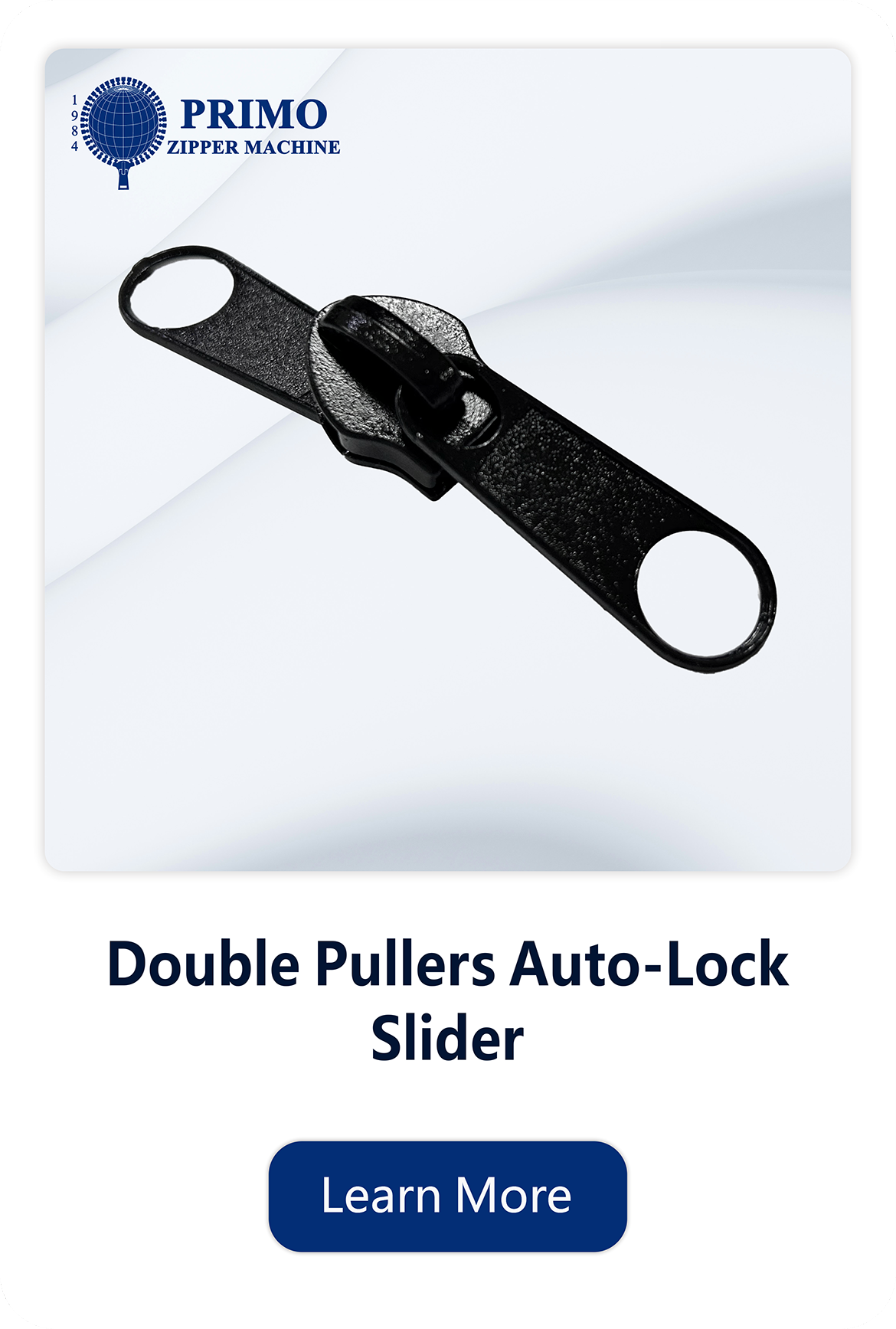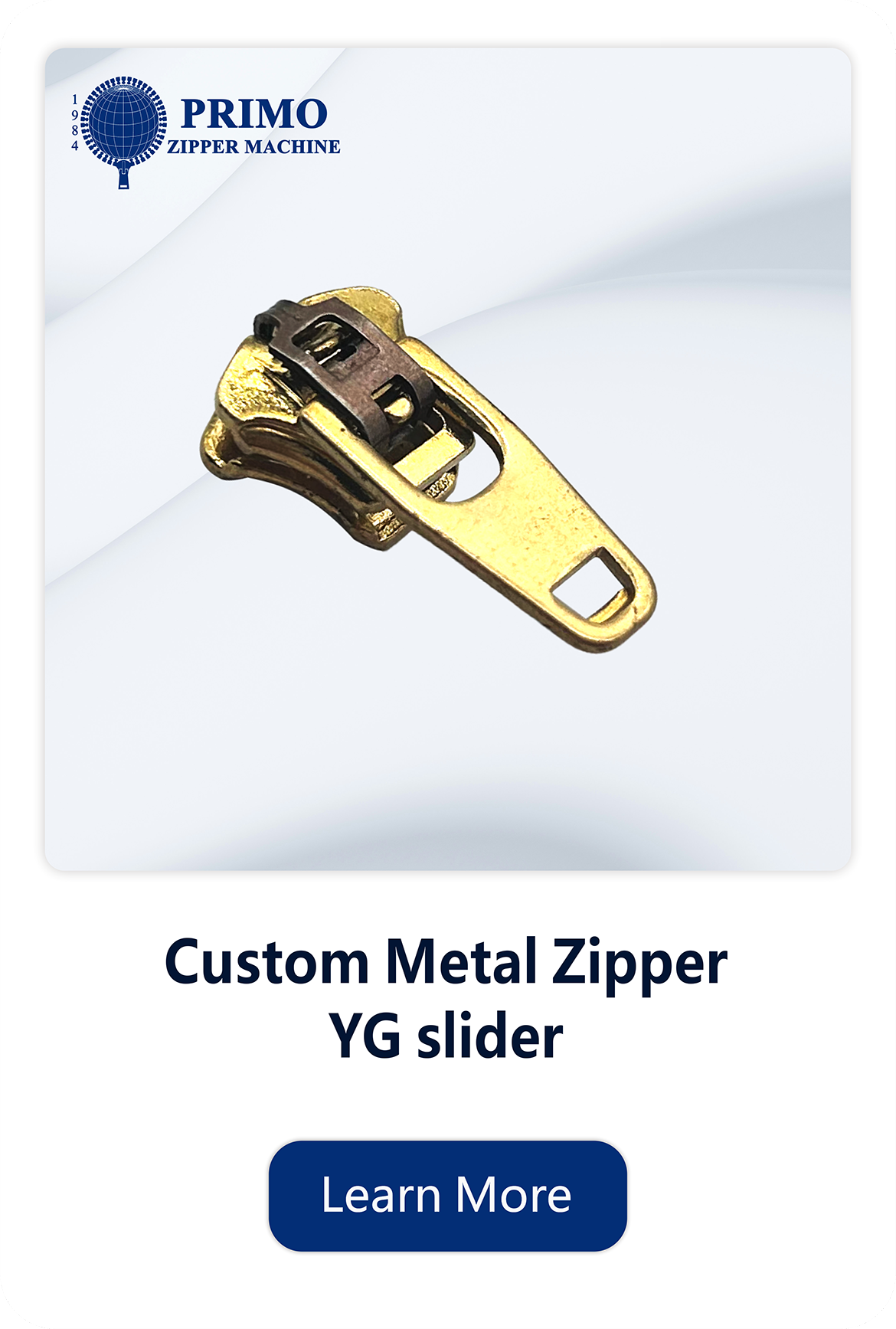Zipper Sliders: A Comprehensive Guide
Zipper Sliders: A Comprehensive Guide
1. Introduction
A zipper slider (commonly called a "拉链头" in Chinese) is the movable component of a zipper that interlocks or separates the teeth/coils when pulled. It is a critical part of zipper functionality, enabling opening, closing, and locking mechanisms. Sliders vary in design, material, and application, tailored to garments, bags, footwear, and industrial uses.
2. Components of a Zipper Slider
-
Pull Tab: The handle used to move the slider.
-
Body (Bridge): The main frame housing internal mechanisms.
-
Top & Bottom Stops: Prevents the slider from detaching.
-
Locking Mechanism: Some sliders feature auto-lock or semi-lock systems.
-
Diamond/Logo Plate: Decorative or branding area.
3. Types of Zipper Sliders
-
Non-Locking Sliders: Basic design for lightweight items (e.g., dresses).
-
Auto-Lock Sliders: Locks automatically when pull tab is released (common in jeans).
-
Semi-Lock Sliders: Requires manual alignment to lock (used in jackets).
-
Two-Way Sliders: Dual sliders for bidirectional opening (e.g., backpacks).
-
Invisible Sliders: Hidden designs for seamless aesthetics (formal wear).
-
Heavy-Duty Sliders: Reinforced for luggage or outdoor gear.
4. Materials
-
Metal: Brass, aluminum, or zinc alloy for durability (jeans, leather goods).
-
Plastic: Nylon or POM (polyoxymethylene) for lightweight flexibility (activewear).
-
Composite: Metal-plastic hybrids for balance.
5. Manufacturing Process
-
Die-Casting/Molding: Metal sliders are cast; plastic ones are injection-molded.
-
Assembly: Pull tabs attached, springs inserted for locking mechanisms.
-
Plating/Coating: Metal sliders may be nickel-plated or painted.
-
Quality Control: Stress-tested for smooth operation.
6. Applications
-
Fashion: Decorative sliders with logos or colors.
-
Outdoor Gear: Rust-resistant sliders for tents, wetsuits.
-
Medical: Sterilizable sliders for surgical gowns.
-
Automotive: High-tension sliders for seat covers.
7. Selection Criteria
-
Zipper Chain Compatibility: Must match tooth/coil size (e.g., #3, #5 sizes).
-
Environment: Corrosion-resistant for marine use.
-
Aesthetics: Custom shapes/colors for branding.
8. Maintenance & Issues
-
Stuck Sliders: Apply graphite or wax lubricant.
-
Misalignment: Realign teeth gently with pliers.
-
Replacement: Use pliers to remove old slider; insert new one.
9. Innovations
-
Magnetic Sliders: Self-aligning for effortless closing.
-
Eco-Friendly: Recycled materials.
-
Smart Sliders: Embedded RFID for luggage tracking.
10. Conclusion
Zipper sliders, though small, are precision-engineered for reliability. Understanding their types and functions ensures optimal selection for any application, from haute couture to heavy industry.



